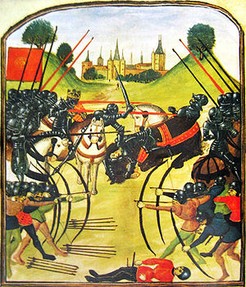 If Anne Neville had mixed emotions during the autumn and winter of 1470, then that's nothing compared to what happened in the spring of 1471.
If Anne Neville had mixed emotions during the autumn and winter of 1470, then that's nothing compared to what happened in the spring of 1471.
In the 21st century, we view our fourteen year olds as children. Our instinct is to protect them and to keep them from danger. Not so in the 15th century.
The adolescent Anne was expected to consummate her wedding to Edward of Westminster. He was only sixteen, so probably as inexperienced as his wife. But even so, that was a marriage bed and her 'job' was to become pregnant as soon and as often as possible.
Anne's one saving grace was that she did not.
She was also under the control of Margaret of Anjou, her mother in law, whom Anne had previously considered only in terms of a demonic she-wolf. All around her, people were preparing for war.
In March 1470, three months after Anne's wedding, Edward IV arrived back in London and seized back his throne. Henry VI was thrown in the Tower of London. The political fortunes teetered back in favor of the white rose.
Anne's father was killed at the Battle of Barnet, in the same month, while trying to reinstate the Lancastrian king. Her mother immediately fled into sanctuary, effectively leaving her daughters without any parental support at all.
Within days, Henry VI died in the Tower of London. The official cause of death was 'deep melancholy'. It's possibly true. But the 'deep melancholy' would have been felt over the knife being bludgeoned into his body.
That technically made Anne the Red Queen, but first they would have to oust Edward IV long enough for a coronation.
News didn't travel very fast in the 15th century. It was April before Anne found out any of this. She was in the company of Margaret of Anjou, arriving at the head of an invasion force on an English beach.
Anne was alone amongst her traditional enemies, while her traditional allies held the throne. She marched with Margaret of Anjou, Edward of Westminster and a large Lancastrian army towards Wales. The idea was to gather a Welsh army to defeat the York army. Word had been sent ahead to Jasper Tudor to this effect, but he couldn't get the Welsh to them in time.
The York army caught up with them at Tewkesbury, just across the river from the relative safety of Wales. Anne was there on the battlefield, an eye-witness to the sheer brutality of Medieval warfare.


 It's one of the hottest ships in Medieval fandom right now.
It's one of the hottest ships in Medieval fandom right now. 

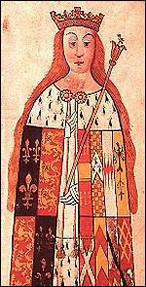 Our first impressions are always based on what somebody looks like. Unfortunately there are very few contemporary pictures of Anne Neville.
Our first impressions are always based on what somebody looks like. Unfortunately there are very few contemporary pictures of Anne Neville.


 The Cousins War - as the Wars of the Roses was originally known - pitted kin against kin. Apparently strong alliances turned on a sixpence in the vagaries of ambition.
The Cousins War - as the Wars of the Roses was originally known - pitted kin against kin. Apparently strong alliances turned on a sixpence in the vagaries of ambition.


 If Anne Neville had mixed emotions during the autumn and winter of 1470, then that's nothing compared to what happened in the spring of 1471.
If Anne Neville had mixed emotions during the autumn and winter of 1470, then that's nothing compared to what happened in the spring of 1471.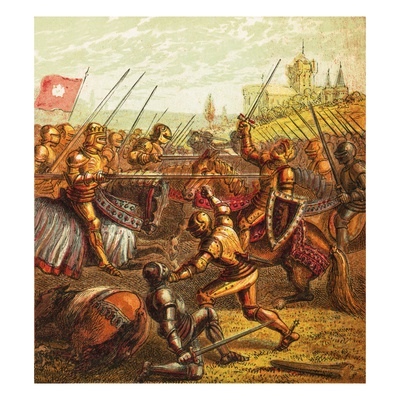



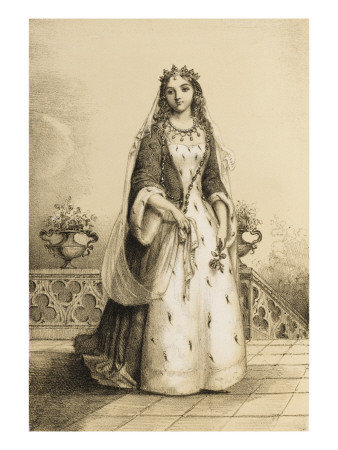

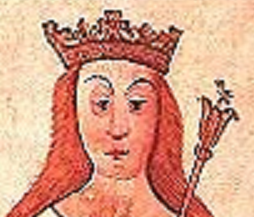 It's very rare that you get to learn much about Medieval women. Their stories tend to get told through the lenses of the men in their lives. They are merely players to get swept along on the tide of events.
It's very rare that you get to learn much about Medieval women. Their stories tend to get told through the lenses of the men in their lives. They are merely players to get swept along on the tide of events.

 From the moment that Edward IV was crowned, there was talk of a marriage between Richard and a Neville girl. However, the bride in question was to have been Isabel. George thwarted that by marrying her himself.
From the moment that Edward IV was crowned, there was talk of a marriage between Richard and a Neville girl. However, the bride in question was to have been Isabel. George thwarted that by marrying her himself.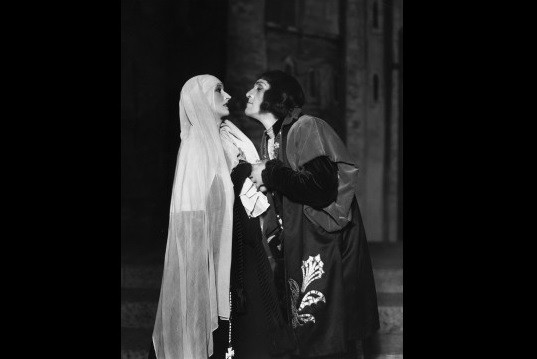


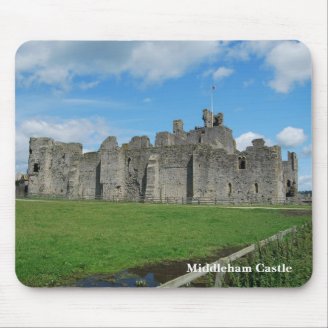



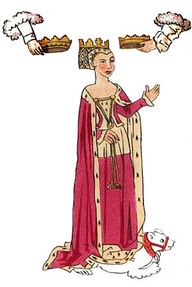 It's been noted that Richard acted quite out of character in seizing the throne, however pragmatic it was in the circumstances. Was Anne so determined to become queen that she pushed him into it?
It's been noted that Richard acted quite out of character in seizing the throne, however pragmatic it was in the circumstances. Was Anne so determined to become queen that she pushed him into it?

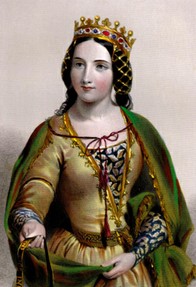 Little is heard of her outside the north of England, until her husband took the throne as Richard III. That was fine. Until then, he had been Edward's custodian in the north, so that's precisely where the couple should have been.
Little is heard of her outside the north of England, until her husband took the throne as Richard III. That was fine. Until then, he had been Edward's custodian in the north, so that's precisely where the couple should have been.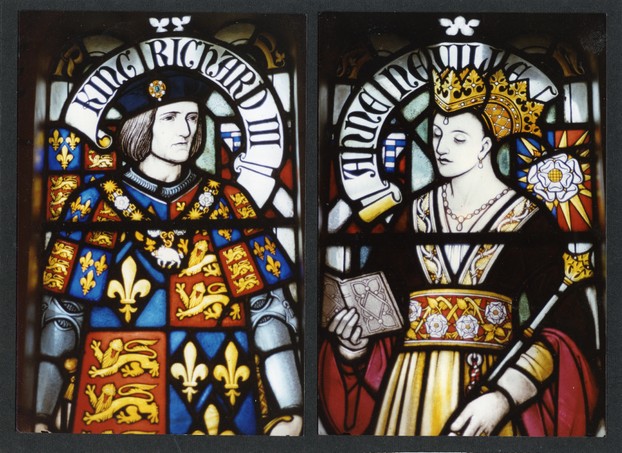
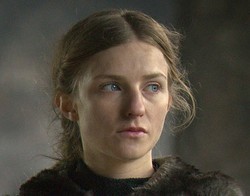

 St Tydecho's Churches in West Waleson 09/03/2014
St Tydecho's Churches in West Waleson 09/03/2014
 Goodies for an Outlander Premiere Partyon 03/06/2015
Goodies for an Outlander Premiere Partyon 03/06/2015
 Holocaust Memorial Day Interview with Rainer Höss, Grandson of Rudolf Architect of Auschwitzon 01/24/2015
Holocaust Memorial Day Interview with Rainer Höss, Grandson of Rudolf Architect of Auschwitzon 01/24/2015
 Romantic Valentine Gifts for an Outlander Fanon 01/16/2015
Romantic Valentine Gifts for an Outlander Fanon 01/16/2015

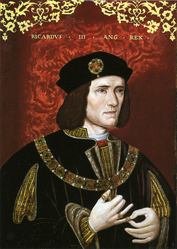
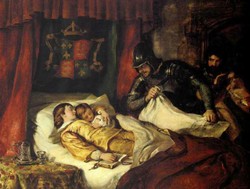
Comments
Anne died at the palace of Westminster, not Middleham. Richard was advised to refrain from sleeping with her as she was infectious. Probably TB or pneumonia. Why would any man desire sex with a sick woman?
As to her appearance she looks a lot like Gillian Murphy of American Ballet Theater. That long face, big dark eyes, high forehead,red hair. Hard not to believe a twenty year old heterosexual male would fail to have an interest in her.
Childhood romance is unlikely. She would only have been 7-10 years old to his 10-13. Maybe she learned some poise and maturity in Amboise with queen Marguerite.
Richard's coronation was actually one of the best attended In English history. It was Tudors that was sparse.
Richard did not poison or dishonor his wife. That would have lost him the invaluable affinity if the north.
I have just discovered that I am a direct descendent. She was my aunt....and the "King Maker" was my great grandfather.....such an amazing story. It also shows that some of what my family suffered from such as consumption and the death of their son(I would think it was due to a heart defect) as my own son and other realitives have suffered this. If we would have not known before hand. He would have been born, sickly and suddenly would have died. (TGA)
That would require Westminster to give up Anne, in order to benefit Leicester's tourism industry. That's how they'd see it. I agree with you though.
they should reunite the couple, after 500 years, they need to be together again, with their son..is only fitting
I'm glad to hear it! :)
Wow. Interesting. You really make them come alive!
I'm glad that you found it interesting.
Anne is rarely written about, but there has been an upsurge in interest in her just recently. Mostly because of Richard's body being found, plus 'The White Queen' being shown. That began in your country on August 10th. Some of the details aren't very accurate - mostly fine detail, some conjecture shown as fact and chronologies messed around - but the overall story is very good. I enjoyed it!
I hope you enjoy the other articles too. Thanks for reading!
Aww, that was so interesting with such a sad ending. :c
Stranger than fiction! I can definitely see why these two have been written about/ had a show made about them. I hadn't seen or heard of the show before now, but she does kind of make the best character to write about when doing a historically based fictional piece, doesn't she? Just enough (extremely interesting) facts, and then a whole lot of wiggle room in playing with her personality and the like. And a sad ending, too!
And, I'd only known of the Shakespeare view of Richard III, I'm going to have to go through the other articles you've written on the topic! :O
Sorry all for the delay. Still having massive internet connection problems here, plus I was away at the Battle of Bosworth anniversary weekend.
NausetViews: Anne certainly did go through a lot. If a modern child/adult went through half of it, we'd have them in therapy!
jptanabe: That's the thing - we may never know anything much more about her, unless there's a hidden cache of letters (possibly under a carpark in Leicester or something) to tell us. But the speculation is always fun!
cmoneyspinner: That was the rumor at the time. He was forced to publicly deny it. I personally don't believe it was true, but I've been very wrong about Richard before. Her family certainly had a leaning towards consumption, as her sister had already died from it. I haven't seen 'Keeping up Appearances' for years! It is a funny show.
whitemoss: I've been thoroughly enjoying 'The White Queen', even as I cringe over some of the historical inaccuracies. I particularly enjoyed the Battle of Bosworth being fought in a wood in the snow. Yesterday (at the reenactment) I'm sure it was in a wheat field in August... And what precisely was Margaret Beaufort doing there? She was in Woking last time I checked a history book!
But despite all of that, the programme has had me gripped. Glad to see that it's doing the same for you and your husband. I wish I was there to join in the conversations!
I've watched every episode of The White Queen- looking forward to the last one on Sunday. My husband and I are both ex history teachers and we spend hours pouring over our old texts, looking things up and discussing the whole thing every week. A bit sad? No! Can't wait to see the last episode this week. I think they will imply Richard was to blame for Anne's death.Who knows?
Great page.